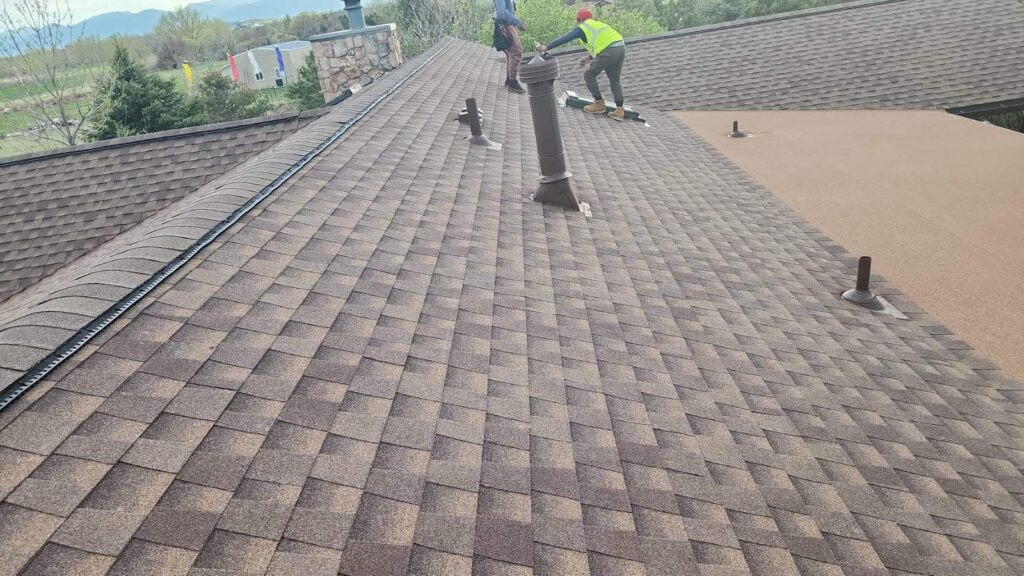Replacing a roof in winter might seem counterintuitive, but with modern techniques, professional expertise, and the right materials, it’s not only possible—it can be beneficial. Below is an in-depth exploration of cold-weather roof replacement, tailored for homeowners and property managers seeking reliable information on roofing in Denver and similar climates.
The Feasibility of Winter Roofing Projects
Understanding Cold Weather Roofing Dynamics
Roof replacements in cold months present unique challenges. Temperatures below freezing can affect sealants, adhesives, and even the pliability of shingles. However, advancements in roofing equipment and the experience of skilled roofing contractors in Denver make year-round roof replacement a feasible option.
Asphalt Shingles: The Cold Weather Consideration
Asphalt shingles, the most common residential roofing material, require thermal activation for the self-sealing strips to bond. In winter, this process can’t rely solely on sunlight. Professional Denver roofers hand-seal each shingle to ensure it bonds effectively, mitigating the risks of wind uplift or water infiltration during the following storm season.
Advantages of Winter Roof Replacements
Lower Demand and Competitive Pricing
Winter is typically a slower season for many roofing companies in Denver, Colorado. This seasonal dip in demand often results in lower labor costs and possible discounts on materials. Homeowners who act during these months may benefit from faster scheduling, better prices, and less competition for qualified roof contractors in Denver.
Protecting Your Property from Further Damage
Postponing necessary roof replacements until spring can lead to extensive structural damage. Winter conditions—snow, ice, and freeze-thaw cycles—can exploit existing vulnerabilities in your roof. An immediate winter replacement can prevent interior water damage, insulation degradation, and costly emergency repairs down the line.
Material Performance in the Cold
Certain roofing materials perform exceptionally well in lower temperatures when installed properly. Metal roofing, synthetic shingles, and properly sealed asphalt systems offer robust protection in cold climates. Ensuring correct material handling and installation practices is key, especially when choosing from roofing companies in Denver CO that are accustomed to the local climate.
Key Considerations for Cold Weather Roof Installations
Equipment and Safety Protocols
Winter roof work demands elevated safety standards. Ice, wind, and snow increase the risks for roofers. Reputable Denver roofing contractors use heated storage for materials, insulated tools, and anti-slip harnesses for workers. These practices ensure consistent performance and safety across the project duration.
Timing and Weather Windows
Scheduling during predictable weather windows is essential. Even in colder months, there are clear days suitable for roofing. Professional crews monitor forecasts to align labor and delivery schedules with the most optimal working conditions. This precision planning minimizes delays and ensures a secure, high-quality finish.
Adhesive and Sealant Adaptation
Adhesive products require special handling in winter. They may be stored in heated trailers and applied at ambient temperatures. Some synthetic underlayments and self-adhered membranes are engineered to bond even in sub-zero conditions, an advantage when contracting roofers in Denver who are well-versed in winter installations.
How to Choose the Right Contractor for Winter Roofing
Experience in Cold-Climate Roofing
Winter roof replacement isn’t for novices. Hiring a Denver roofing company with proven winter experience is critical. The ability to install roofs effectively in winter demands an understanding of building envelope science, cold-weather material behavior, and efficient crew coordination.
Clear Communication and Transparent Estimates
Ensure your contractor provides a comprehensive estimate that includes material handling, potential weather delays, and cold-weather techniques. Transparent communication around winter logistics sets apart the best Denver roofing company from those unprepared for seasonal complexities.
Warranty and Post-Installation Inspection
Choose a contractor that offers a robust warranty covering both materials and workmanship. Request a post-installation inspection once temperatures rise, ensuring all sealants have properly activated and shingles have bonded as expected.
Why Winter May Be the Best Time to Act
Waiting for spring might seem safer, but acting now could prevent serious future expenses. Whether you’re dealing with aging shingles, ice dam formation, or a leak from recent snowstorms, a winter replacement can reinforce your home against months of additional wear.
In a climate like Denver, Colorado, seasoned professionals such as Tried and True Roofing, a trusted name in roofing services in Denver, understand how to adapt installations for cold temperatures while maintaining superior quality and performance.
Conclusion
Roof replacements during winter are not only possible—they can be highly advantageous when handled by experienced roofing companies in Denver. With lower demand, protective benefits, and modern installation techniques, homeowners can take proactive steps even in the coldest months. Selecting a qualified Denver roofer with a deep understanding of seasonal conditions ensures that your roof performs reliably, rain or snow.
Acting swiftly when your roof shows signs of failure could save thousands in future damage. Winter doesn’t pause the need for protection—neither should you.


